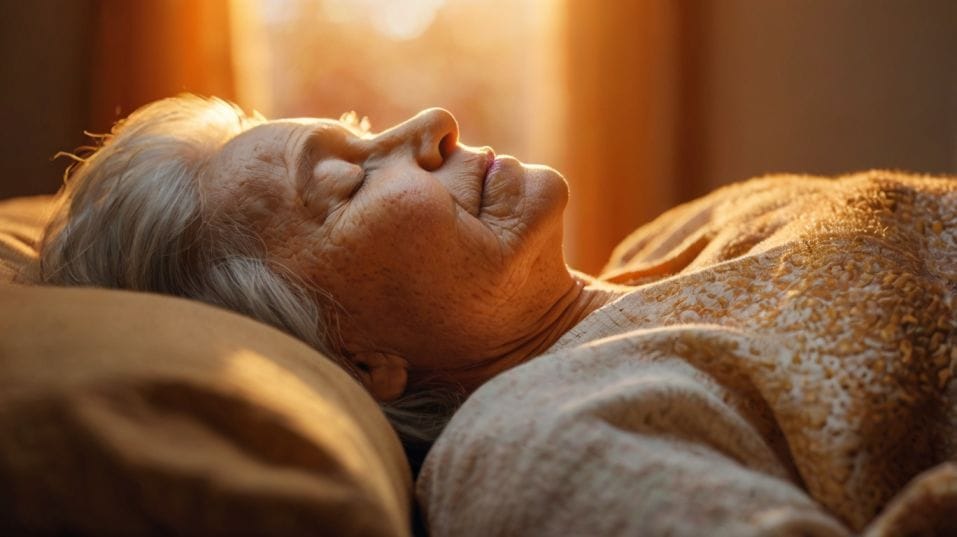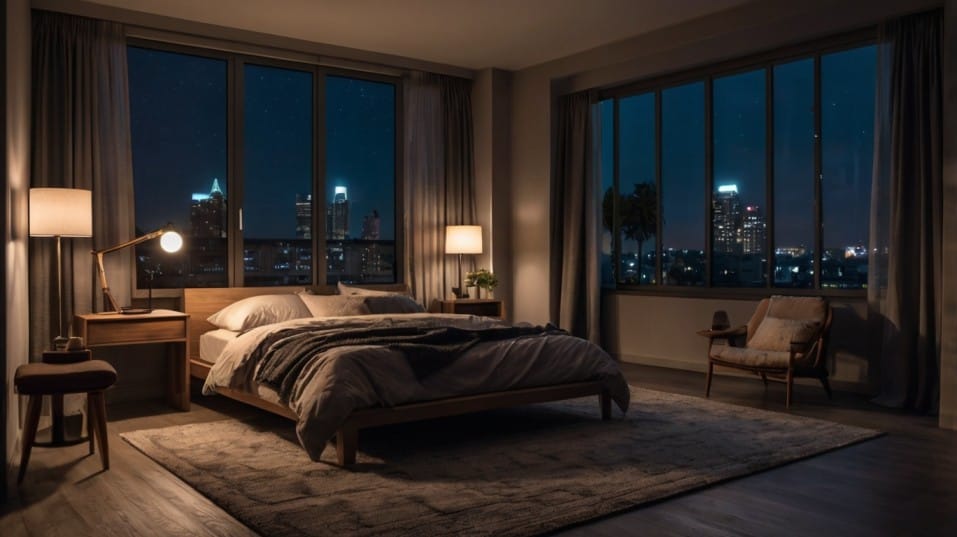How Quality Sleep Supports Healthy Aging
Sleep better, age stronger. Discover simple, science-backed habits that help your brain, body, and energy thrive—no overhaul required.

What if the key to staying sharp, strong, and energized as you age isn’t another supplement—but better sleep? It’s not hype. Quality rest powers your body to repair, regulate, and rebuild.
From boosting brain function to protecting muscle and hormone balance, sleep quietly shapes how well you age.
And the best part? You don’t need a total lifestyle makeover. Just smarter habits and consistency. Ready to make sleep your secret weapon for aging well?
Your Body Repairs While You Sleep—So Let It
Here’s what’s happening while you’re out cold: your body gets to work. Deep sleep triggers the release of human growth hormone (HGH), which is key for muscle repair, collagen production, and fat metabolism.
This isn’t about aesthetics—it’s about function. Whether you’re recovering from a workout, healing from stress, or just keeping your joints moving smoothly, HGH makes it happen.
Sleep is also when your brain goes into detox mode. Literally. Your glymphatic system—basically your brain’s cleaning crew—flushes out cellular waste that builds up during the day.

That junk needs to go, or it interferes with cognition. Consistent, quality sleep keeps your mind clear, sharp, and focused. You’re not just improving memory—you’re protecting it.
And hormones? Sleep regulates the hell out of them. Testosterone, estrogen, cortisol, insulin—they all get balanced while you sleep.
These are the same hormones that impact everything from muscle mass to fat storage to your ability to stay calm under pressure. Skip good sleep, and you throw the whole system out of whack.
You Don't Need a Sleep Overhaul—Just a Smarter Routine
If you're just starting out, don't complicate it. Good sleep isn't a luxury. It’s built into how your body is designed to function. You just have to stop fighting it. The fix? Simple habits done consistently.
Wake up at the same time every day
No, seriously—every day. Your circadian rhythm (your body’s internal clock) loves rhythm. Wake at 6 a.m. Monday and 9 a.m. Saturday, and you're creating jet lag without leaving your house. Consistent wake time = deeper, easier sleep.
Get outside early
Within an hour of waking, expose your eyes to natural light. This locks in your body clock and boosts morning alertness.
Your brain reads sunlight as "go-time," which makes the nighttime "slow-down" happen naturally later. This one tweak can dramatically improve how easily you fall asleep at night.
Control your light at night
Too much light after sunset confuses your brain into thinking it’s still daytime. That means delayed melatonin release and lower sleep quality.
So cut the overheads. Dim the lights. Use warm bulbs. And give your screens a curfew—no doomscrolling in bed. Blue light late at night is a sleep killer.
Create a wind-down routine that doesn’t suck
You don’t need lavender oil or a Tibetan singing bowl. Just give your brain some closure from the day.
Try a warm shower, light stretching, a physical book, or journaling. Make it easy, repeatable, and something you don’t dread. Your body will start associating it with sleep prep.
Set Up a Sleep Environment That Works For You
Your bedroom should be boring—in the best way possible. This is where comfort meets performance.
Cool it down
Optimal sleep happens when your core temperature drops. That’s why cooler rooms (around 60–67°F or 15–19°C) support deeper sleep.
If you’re waking up sweaty or tossing blankets off at 3 a.m., your room’s too warm. Crack a window. Switch to lighter bedding. Use a fan if you need it.
Block the noise
Even if you don’t fully wake up, noise fragments your sleep cycles. Use earplugs, white noise, or whatever keeps the city, traffic, or your snoring partner from hijacking your REM.
Kill the light
Any light—yes, even that glowing power button on your TV—can mess with melatonin production. Go blackout. Cover LEDs, hang blackout curtains, and make your bedroom pitch-dark. Your sleep quality will thank you.
Fuel Sleep with Smarter Evening Habits
What you eat and drink in the hours before bed absolutely affects how well you sleep.
Caffeine has a half-life of 5–6 hours
That means your 3 p.m. coffee is still messing with your nervous system at 9 p.m. If you’re sensitive, cut it off even earlier.
Alcohol is a fake friend
Sure, it might knock you out quickly, but it disrupts your deep sleep and REM cycles. That means lighter, more fragmented rest—and you feel it the next day. If you drink, cut it off 2–3 hours before bed.
Don’t go to bed starving, but don’t stuff yourself either
A light snack with protein can stabilize your blood sugar and keep you from waking up at 2 a.m. feeling weirdly alert. Think Greek yogurt, a few almonds, or a boiled egg. Nothing fancy. Just something solid.
Sleep Is the Long Game for a Younger, Stronger You
Sleep isn’t just about how you feel the next morning—it’s about how well you function over time. When you sleep well:
- Your skin maintains elasticity longer
- Your muscles recover faster after workouts
- Your immune system hits harder against daily stressors
- Your brain stays flexible, focused, and sharp
You age slower. You live better. You get more out of the energy you already have.
Final Thoughts
Sleep is your body’s most underrated advantage. It resets your mind, repairs your body, and reinforces every healthy habit you’re building.
You don’t need gadgets, supplements, or a 10-step routine. You just need consistency and a few smart shifts.
Pick one thing and start tonight. Same wake-up time. Earlier sunlight. Cooler room. No screens before bed.
Whatever feels most doable—commit to it. Sleep isn’t a chore. It’s your nightly upgrade. Sleep like it matters. Because it does—and it always will.




